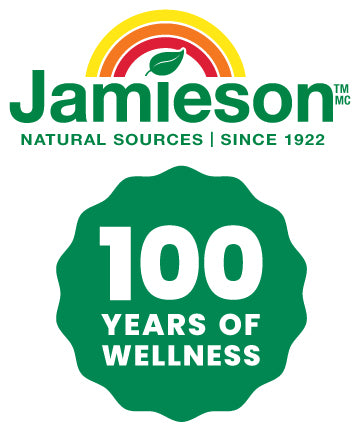The fourth trimester is a phrase used to describe the first few months after a baby is born where parents may be recovering from the delivery of the baby and are adjusting to a routine of less sleep and new challenges. A new parent’s needs are important during this time and simple nutrition and lifestyle habits can help reduce fatigue and mental health distress that can arise during this time.
The thought of implementing new health habits and routines during this phase of life can easily feel like adding another ‘task’ to the never-ending to-do list. These simple strategies have lasting impact on how parents feel and can prevent a parent’s health from sliding backwards in the early months of parenthood. Choose a few simple and impactful options from this list to try but also have immense self-compassion for how difficult even the most simple-sounding tasks can be.
If you have carried and birthed your baby, there are many hormonal changes that happen in the post-partum window that can also lead to symptoms and changes that can be difficult to manage during the new demands of parenthood. These changes are unavoidable as the body slowly returns to its pre-pregnancy state.1 It’s important for new parents to realize that these body changes may happen and for them to focus on the things they can influence such as their nutrition and supplementation.
What and when you eat matters:
Post-partum nutrition can be challenging for many reasons. Parents are often exhausted and struggle with their new responsibilities. The parent who is primarily caring for the new baby may also have been the primary person responsible for a family’s nutrition and meal preparation. All these factors, understandably so, mean that nutrition can easily be compromised in the post-partum period. Many studies have linked a healthier diet including vegetables, legumes, whole grains and fruits with lower likelihood of developing post-partum low mood.2
When parents have altered sleep and eating times in the infancy phase, it’s common for parents to have long windows of time without eating or eating at times of the day that they would normally be sleeping. Parents who eat at more typical daytime meals have an easier time managing post-partum health and supporting a return to pre-pregnancy metabolism and weight.3 Even though it can be difficult to eat at regular times given the baby’s sleep (or lack of sleep) schedule, choose simple meals that can be easily prepared or prepared by someone else and eat a substantial amount of food at each regular mealtime instead of grazing throughout the day. Asking for help with your nutrition from family and community can also help improve nutrition and decrease feelings of helplessness in new parents. Parents who feel overwhelmed and helpless after bringing their baby home have a more difficult time managing their nutrition, which can become a vicious cycle of fatigue, symptoms and difficulty with self-care.4 The body’s nutritional needs during lactation are higher and larger more regular meals can help people meet their nutritional demands and create a feeling of fullness between each meal to help reduce overnight snacking. If you’re hungry in the night you may benefit from eating more in the evening hours.
Supplementation for new parents:
Supplements can help close the gap between what the body needs and dietary intake and can help correct deficiencies that can often arise in pregnancy and the post-partum period. The recommendation for parents to continue to use prenatal vitamins in the post-partum period are often in reference to nursing and lactation, but low levels of iron, vitamin D and B vitamins have been shown to be correlated with post-partum low mood in parents who are not nursing, highlighting the importance of multivitamin support for all new parents.5 The research on lactation and vitamins shows that even if a person’s diet is deficient in vitamins and minerals, supplementing in the lactation period can help improve the quality of breastmilk.6 People can become iron deficient during pregnancy, which may last into the post-partum period. Even though iron requirements during the post-partum period are lower than in pregnancy, having iron deficiency in post-partum can lead to extreme fatigue, difficulty concentrating and low mood.7 The post-partum period also requires adequate vitamin D. Vitamin D deficiency has been linked with a greater risk of post-partum low mood.8 Levels of Vitamin D can be tested with a health care provider to determine the right dose for each patient. New parents also benefit from omega-3 supplements to support mood in the post-partum window. Both EPA and DHA have been studied in late pregnancy and early post-partum to have a positive impact on a parent’s mood and risk of low mood.9,10
The fourth trimester is a time for many physical and emotional changes as well as change to a family’s routine. Simple strategies that support nutrition and supplementation can support new parents to manage their health during this time, impacting the health of the entire family.
In summary, taking care of yourself during the fourth trimester can include strategies such as:
- Eating at regular mealtimes as much as possible.
- Including fruits, vegetables, legumes, healthy grains, and adequate protein.
- Asking for help with meals and choosing simple to prepare options.
- Continuing to take your prenatal vitamin or a multivitamin
- Ensure you are getting enough iron in your diet or consider supplementing
- Have your vitamin D levels tested and take a supplement if needed
- Supplement omega-3s to support post-partum mood
- Chauhan, G. & Tadi, P. Physiology, Changes. in StatPearls (StatPearls Publishing, 2021).
- Opie, R. S., Uldrich, A. C. & Ball, K. Maternal Diet and Depression: A Systematic Review. Matern. Child Health J. 24, 966–978 (2020).
- Loy, S. L. et al. Associations of Circadian Eating Pattern and Diet Quality with Substantial Weight Retention. Nutrients 11, E2686 (2019).
- Faria-Schützer, D. B., Surita, F. G., Rodrigues, L. & Turato, E. R. Eating Behaviors in : A Qualitative Study of Women with Obesity. Nutrients 10, 885 (2018).
- Zhao, X.-H. & Zhang, Z.-H. Risk factors for depression: An evidence-based systematic review of systematic reviews and meta-analyses. Asian J. Psychiatry 53, 102353 (2020).
- Kominiarek, M. A. & Rajan, P. Nutrition Recommendations in Pregnancy and Lactation. Med. Clin. North Am. 100, 1199–1215 (2016).
- Guideline: Iron Supplementation in Women. (World Health Organization, 2016).
- Szpunar, M. J. Association of antepartum vitamin D deficiency with depression: a clinical perspective. Public Health Nutr. 23, 1173–1178 (2020).
- Hsu, M.-C., Tung, C.-Y. & Chen, H.-E. Omega-3 polyunsaturated fatty acid supplementation in prevention and treatment of maternal depression: Putative mechanism and recommendation. J. Affect. Disord. 238, 47–61 (2018).
- Lin, P.-Y., Chang, C.-H., Chong, M. F.-F., Chen, H. & Su, K.-P. Polyunsaturated Fatty Acids in Perinatal Depression: A Systematic Review and Meta-analysis. Biol. Psychiatry 82, 560–569 (2017).




